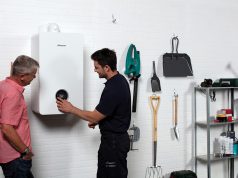
A boiler is an integral component of many UK households, providing both warmth and hot water. Like any significant appliance, its performance can deteriorate over time due to wear and tear. However, with regular maintenance, it’s possible to extend your boiler’s lifespan considerably. This article highlights essential tips to ensure your boiler serves you efficiently for years to come.
1. Annual Professional Checks
Scheduling an annual boiler service with a registered engineer is paramount. During these checks, the engineer will inspect the boiler for any potential issues, ensure that it’s working efficiently, and replace any worn-out parts. Such proactive servicing can prevent minor issues from escalating into significant, expensive problems.
2. Regularly Bleed Radiators
Over time, air can become trapped inside radiators, making them less efficient and causing cold spots. By bleeding your radiators regularly, you can ensure they’re working optimally, placing less strain on your boiler. To bleed a radiator:
- Turn off your heating.
- Use a radiator key to open the radiator’s valve.
- Let out the trapped air until water starts to emerge.
- Close the valve.
3. Monitor Boiler Pressure
According to iHeat, your boiler’s pressure should be maintained at the recommended level, typically between 1 and 1.5 bars. A pressure that’s too high or too low can strain the boiler and reduce its efficiency. Check the pressure gauge regularly and consult your boiler’s manual for specific instructions.
4. Keep The Boiler Clean
Dust and debris accumulation can hamper your boiler’s performance. Ensure the area around your boiler is clean, and also consider cleaning the inside components like the heat exchanger, if your manual recommends it. If you’re unsure about the internal cleaning, it’s best to consult a professional.
5. Prevent Pipe Freezing
During winter, there’s a risk of external condensate pipes freezing, which can prevent the boiler from working. To counteract this, insulate these pipes with quality lagging. If you notice your boiler making unusual gurgling sounds or refusing to start during cold weather, the pipes might have frozen. In such cases, you can pour warm (not boiling) water over the pipes to thaw them. However, to prevent recurrence, consider rerouting or further insulating the pipes.
6. Ensure Proper Ventilation
If your boiler is housed in a cupboard or a confined space, it’s crucial to ensure it’s adequately ventilated. Boilers require a good supply of oxygen to burn fuel efficiently. By ensuring that there are sufficient air gaps around your boiler and no obstructions, you can optimise its operation.
7. Check for Leaks and Drips
Regularly inspect your boiler and its surrounding area for any signs of leaks or drips. Water or fuel leakages not only waste resources but can also signify internal problems that need addressing. If you spot a leak, call in a professional immediately to diagnose and fix the issue.
8. Use Quality Fuel
For those using oil-fired boilers, the quality of fuel plays a significant role in the boiler’s efficiency and longevity. Using low-quality oil can lead to residue build-up and inefficient combustion. Always opt for a reputable supplier and quality fuel to maintain your boiler’s health.
9. Upgrade When Necessary
While maintenance can significantly prolong your boiler’s life, there comes a point when upgrading is more economical than continual repairs. Modern boilers tend to be more energy-efficient and are designed to last longer. If your boiler is more than 15 years old, consider the benefits of investing in a new model.
In Conclusion
Regular maintenance of your boiler is more than just a recommended practice; it’s a necessity to ensure efficient performance and longevity. By adhering to these tips and seeking professional advice when in doubt, you can enjoy a warm, hassle-free home environment for many winters to come.













